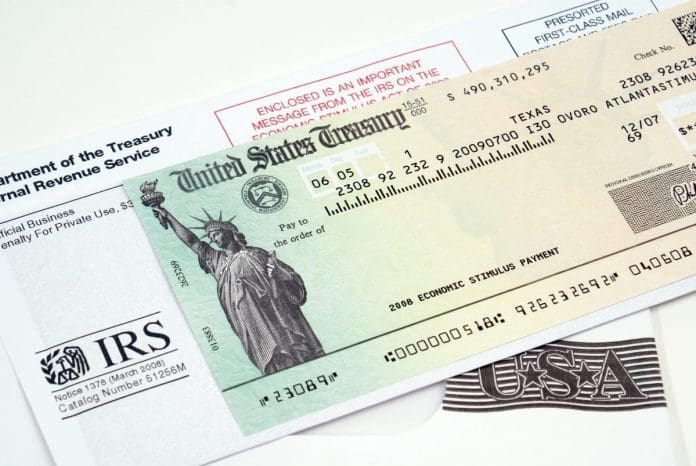The IRS advisory to residents of states that gave out inflation relief stimulus checks hurt for more than one reason. It frazzled those low and moderate-income families. They believed that the inflation relief payments would be taxed and affect their tax refund checks.
Delayed income tax refunds are indeed a big concern, especially for low and moderate-income families who depend on the yearly payments from the federal government to pay for several vital expenses right after the holiday season. These are the very people who tend to file their income tax returns at the very first opportunity.
But in many ways, delayed refunds are a status quo issue for poorer households along with a host of other issues brought about by far-from-perfect IRS policies and shortchanged budgets. For low and moderate-income Americans, the IRS doesn’t work even when the government is fully ready for business, leave alone the pandemic and post-pandemic years.
One of the issues that taxpayers face, especially in the low-income category, is limited or no access to the internet. If those people were to call up the IRS to get help or advice with their taxes, instead of accessing the website, the odds were that they would not get to speak to anyone.
But the IRS has strived to change things and has researched ways to turn more prompt and reactive in their interaction with taxpayers. To its credit, the agency has offered free in-person tax-prep in person for low and moderate-income groups. This is done through the Volunteer Taxpayer Counseling for the Elderly and the Income Tax Assistance programs called TCE and VITA respectively.
90% of the eligible filers for the VITA program have an AGI of less than $54,000 annually. But due to publicity issues, the inaccessibility of a VITA volunteer, and the location, few householders can avail of this free service. Only around three to four percent of people who are eligible for the programs successfully submitted their taxes through this service.
Filers instead turn to Tax Prep, ending up paying a fee for something that can quite as effectively done easily and for free. Over fifty percent of households with an AGI of less than $30,000 annually use Tax Prep, paying $176 on average for a basic state or federal income tax return.
And instead of a final resolution to their tax filing problem, that brings in more problems than it resolves. Tax preparers are likelier to commit errors than householders and individuals who do their tax calculations.
To further compound problems, such householders are the least able to absorb an IRS penalty for incorrect filing. The major tax prep companies partner with the IRS to offer free filing for taxpayers. The qualification is usually linked to income. But such programs are tricky and quite difficult to navigate and push people towards the paid navigation system.
To further compound matters, many states do not allow such free filing programs for their state income tax filing. Thus, just 3% of the eligible filers end up using the free filing programs, and for most, it is a one-time use as they do not repeat its use for the next year.
But the IRS has been especially vigilant in the case of low and moderate-earning Americans for fraud investigation. Even though the evidence of fraud is lower than 15% in the case of such individuals and households investigated, such investigation means that tax refunds in their cases are delayed for weeks, even months. Over a third of low and moderate-income taxpayers in 2017 had to wait for over 11 weeks on average to receive their tax refunds.
Tax Refund Process To Get Less Complicated In 2023 Tax Season
One of the most important functions that the IRS performs annually is the timely issuance of tax refunds. For 2022, a third of taxpayers were entitled to tax refunds with an average tax refund amount of close to $3,200 for a filer. The IRS failed to timely pay tax refunds to millions of taxpayers. One major reason was that millions of individual returns that were e-filed faced temporary suspension as they tripped processing filters set in place by the IRS.
Such filers require manual review by officials of the IRS before finally the tax refunds were issued. For the same reason, tax refunds claimed by employees under the Employee Retention Tax Credit were delayed as they triggered alarms. As a result, they had to be reviewed manually, which is a time-consuming process.
The IRS is expected to make major changes to improve the process in 2023. The IRS already had an unprocessed backlog of 4.7M individual returns from 2022. There were also 3.6M amended returns and 3.2M business returns from the previous year. by December 2022, this backlog was reduced to 1M original returns, 1.5M business returns, and 1.5M amended returns.
Speeding Up The Tax Refund Process
Waiting for the tax refund is frustrating, especially for low and moderate-income families and individuals. There are several ways in which taxpayers can help speed up the process and get their tax refunds earlier. Filing ASAP is one of the most effective methods. You get your money sooner, and you also lower the odds of criminals stealing your tax refund.
Another effective way to get your tax return sooner is e-filing your returns. Paper tax returns take six to eight weeks to process while e-filing will bring that time down to around 3 weeks. Using the free version of the software provided by the big names in tax processing will help you file electronically without paying a tax preparer.
You would also need to sign up for a direct deposit to your bank account and skip the paper check route. That way the tax refunds come in directly to the bank account within hours. This will save the long delay of up to a month from the US Postal Service to deliver your paper check to your mailbox.
Tracking the tax refund with the IRS and state returns is also important. It won’t make the checks move faster but will warn you if there is an excessive amount of delay in the tax refund process.






